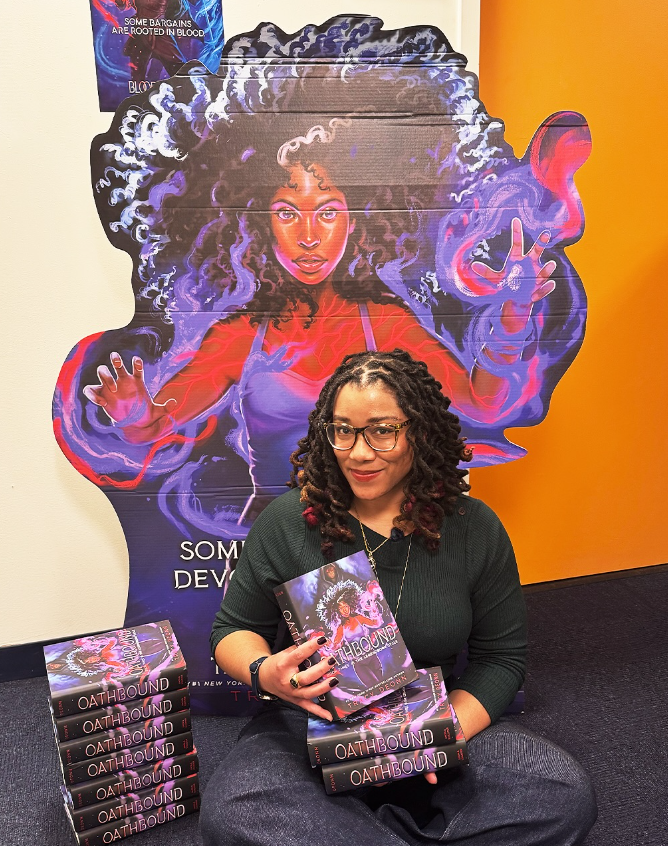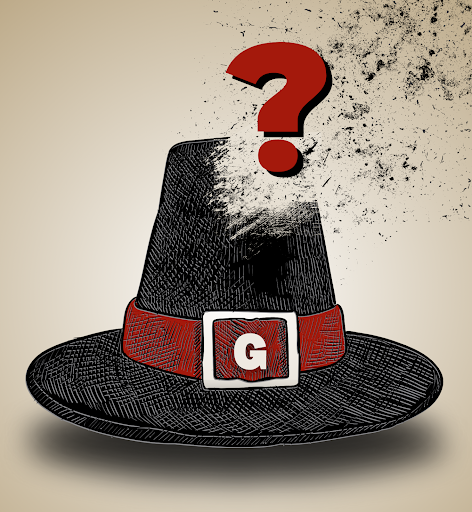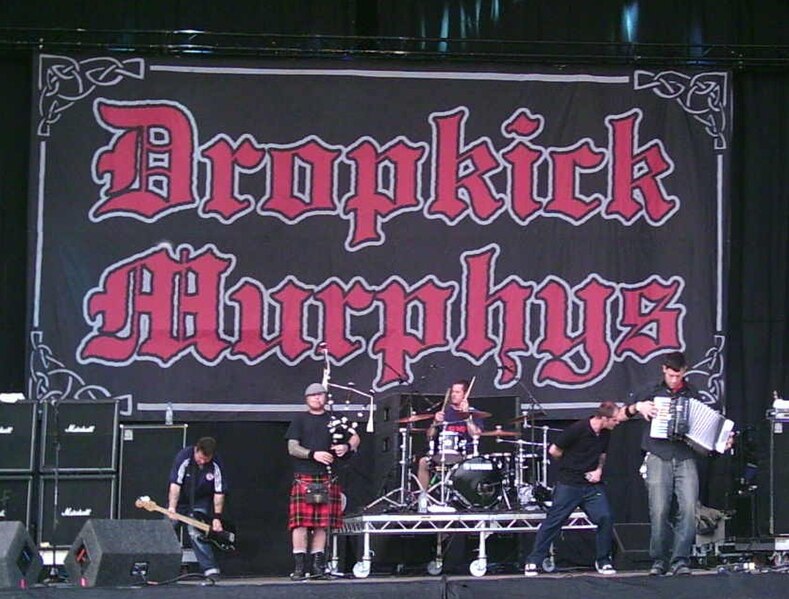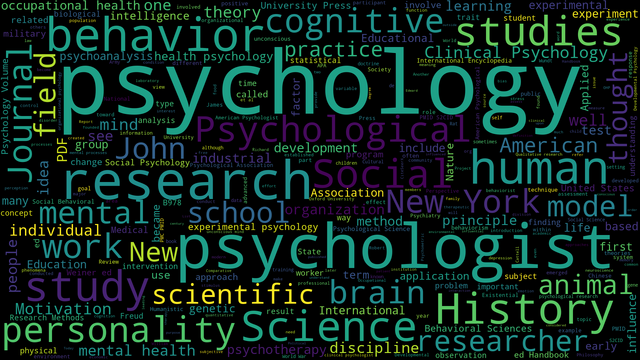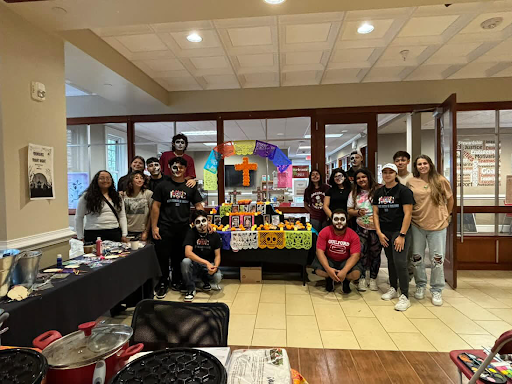Imagine a family reunion where all your favorite aunts and uncles show up and they are as happy to see you as you are to see them. Family drama is checked at the door and you don’t encounter any uncomfortable questions about your weight, marital status, or the possibility of grandchildren.
You finally get a chance to sit down and chat with those cousins whose names you always forget — since you only see them once a year at best — and you find out that you have a surprising amount of things in common. In fact, you click so well that you wonder how you could have possibly overlooked this amazing branch of your family.
The good food, excellent drink, and belly laughs seem boundless. You have such a great time that even before the reunion ends, you find yourself looking forward to the next time you and your family get together. As unlikely as the scenario may seem, that is exactly how it felt to spend two weeks with my extended Guilford family this summer at the Munich study abroad reunion.
Our group of exactly 100 hailed from both sides of the Atlantic — 50 from Germany and 50 from America — and consisted of professors, host families and alumni who had spent a semester studying in Munich. Each day, we went on an excursion with a professor or host family from the program, and each evening we descended en masse on a Biergarten to relax, reminisce and trade stories.
For me, the reunion was a potent blend of nostalgia and discovery. One night, I found myself walking past the apartment building my family lived in during the first time my dad led the Munich program, and less than two miles later I was meeting up with the group in a Biergarten that I hadn’t even known existed!
When my dad, Binford Professor of Biology Frank Keegan, had led the program, I was younger and still somewhat in awe of those grown-up college students. At the reunion, I had the chance to reconnect with a couple of students from our group. This time I could relate to them differently — as a fellow Guilford alumna.
In speaking with other alumni who had spent time in Munich, I found that while we have a lot in common that we love about the city, food, and culture, we all remember different details. I still can’t believe that I spent two semesters in Munich, plus a year in Regensburg, and did not discover Käsespätzle (a German dish similar to macaroni and cheese, but better!) until the reunion this summer. Two weeks was not enough time to check out all the new things I was hearing about!
When I was younger and traveling with my family, I remember how I whined about having to go to yet another museum, having to walk everywhere, having to speak a different language, etc. Now that I’m older, I treasure those same experiences because of how they ultimately contributed to my willingness to learn and try new things today — like Käsespätzle. My brother, who had had similar complaints to my own back in the day, made sure that this time we visited some new museums and that we also returned to view the works of the masters from the 13th–18th centuries at an old favorite, the Alte Pinakothek.
Over the course of the Munich reunion, I interacted with Guilford alumni ranging from the class of 1983 to the class of 2011. Despite the differences in our ages and backgrounds, we were all united by the life-changing semester we had spent living abroad during our college years.
I learned that everyone in our group went on to become world travelers, as if our time in Munich was the catalyst for a lifelong journey to explore the unknown. As we got to know each other, it became apparent that the alumni who participated in the reunion are caring, thoughtful people who not only keep up with current global issues but also look ahead and take action to shape a better tomorrow. I don’t think it’s a coincidence that we all graduated from Guilford.
Many alumni brought along spouses and even children. Having experienced the study abroad program as the daughter of a Guilford professor, I was especially touched to see that other people also wanted their families to share in the discovery of traveling and experiencing different ways of life. My brother and I had fun swapping stories with the Lindeman and Limburg “kids” about what it was like to spend part of our childhood in a foreign country, and I hope that someday in the future the children who came to our Munich reunion will do the same.
Most importantly, we all got to spend time with the professors and families who had guided us and taught us while we lived abroad, and who had in that time become like favorite aunts and uncles to us.
Our German mentors were surprised and touched by the number of alumni who made the trip to see them. They had expected just a few of their former students to show up for the daily excursions and were shocked to find themselves the center of attention in a group of 30 or more alumni on any given day.
The Yngborn family took us on a typical kind of German outing — a hike through picturesque countryside with stops at a small chapel and palace grounds. Our feet were glad to reach the benches of the Biergarten that night!
On our excursion to Freising, our art history professor Dieter Kühnel simultaneously educated and entertained us with his vast knowledge and his ability to deliver jokes completely straight-faced. For example: “This is near the place where I met my wife Gabi, and every year we come back here to commemorate that tragic day.” Wait, what?
Our German history professor, Bernhard Lehmann, has a wide smile and an easy manner that quickly made you forget that history is supposed to be boring. Leo Brux, who I remember from intermediate German, took us to the Franz Marc museum in Kochel, where he reacquainted us with his love of art and philosophy. If you think of the German psyche as being overly mechanistic and industrialist, you should hear Leo speak about the importance of untamed nature and imagination.
Barbara Hundshammer is the teacher whose beginning German class dispelled for good my fear of learning a new language. I challenge anyone who is starting out on a study of foreign language to do a few folk dance steps, massage their earlobes, and sing a tune about being a foreigner who doesn’t speak very well. It is nearly impossible to do these things as a class and not relax, even if you are just giggling about how silly everyone looks.
At the reunion, nearly 20 years after that semester of German 101, I had the chance to sit with Barbara in the Biergarten at Andechs and proudly converse with her auf Deutsch.
Finally, there was the memorable afternoon we spent with Karl Fischer, a long-time friend of the program and one of its first organizers. He passed around his collection of postcards, papers, photos, and other memorabilia from the Munich study abroad program. His keepsakes dated back to the very beginning of the program in the late 1970s. Although Karl’s age is advanced, he still delights in good conversation and also in teaching students risqué German phrases.
Sadly, I have heard the stereotype of Germans as brusque and unfriendly people repeated more times than I can count. It makes me wish that everyone could have an opportunity like Guilford’s Munich study abroad program to challenge their stereotypes and meet wonderful new people.
This summer’s Munich reunion was made possible by the dedicated efforts of Professor of German Dave Limburg, who got in touch with alumni and other people associated with the program, made up contact sheets, arranged lodgings, and organized our schedule. The Limburg and Keegan families stayed at the same Pension for several days, and on the mornings that my brother and I made it to an early breakfast, we always found Dave already in the breakfast room, fine-tuning plans for the day. Yet no matter how absorbed he was in his work, he never failed to direct a smile our way and spend a few minutes chatting.
Dave is truly the heart of the Munich study abroad program. His infectious enthusiasm and genuine caring draw people in and promote a sense of camaraderie. His willingness to mentor and to forge strong relationships with our German contacts has eased the way for study abroad leaders and students alike. My dad credits the time he spent sitting in on Dave’s classes and Stammtisch with his success in navigating Munich both times that he led the program.
Associate Professor of Physics Don Smith and Associate Professor of Psychology Eva Lawrence were the newest members of the Munich branch of our Guilford family to attend the reunion. Their presence gave us a glimpse into the bright future of the Munich program. Don led the program this year, and Eva will lead next year. Don has already spent quite a bit of time in Munich working on a research project at the Max Planck Institute. Eva confided that she’s a little nervous about her German skills, but she is sitting in on Dave’s class. If my experience as Dave’s student is any indication, I’m sure Eva will be able to start her semester abroad with confidence.
Spending two weeks in Munich in the company of some very special people made this one of the best reunions I’ve ever been to. In fact, we had such fun that those of us who can are getting together soon at a local version of Oktoberfest. We’re calling it “The Munich Reunion Reunion.” I can’t wait!

